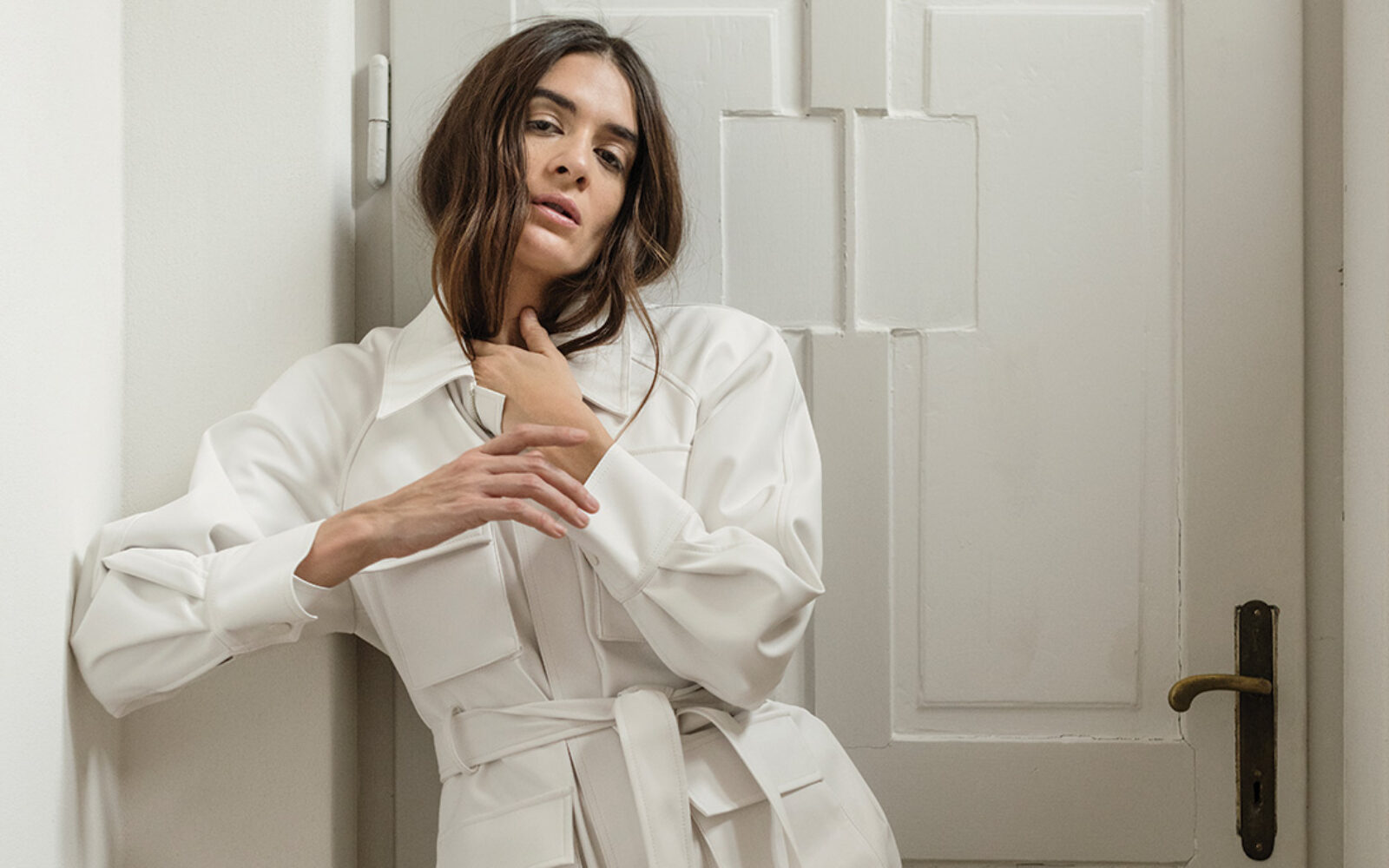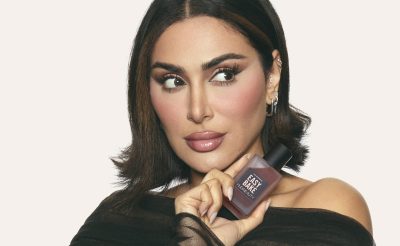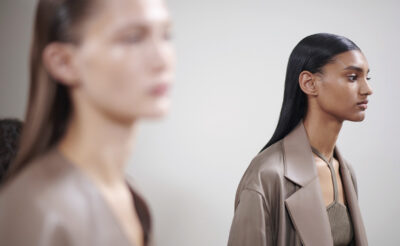Will the low-maintenance beauty routines of lockdown ever bounce back to their good old pre-pandemic glamour days?
Before the pandemic, my vanity and bathroom shelves were lined up with military precision. Skincare stood to attention, grouped by function, and makeup was colour-coded, not an eyeliner or lipstick out of place. I would wake up at least 20 minutes early to get ready. Standing in front of the mirror, I cleaned and cleansed my face. I applied serums, moisturiser and then SPF. Next, concealer, foundation, contour and highlight followed, and the list went on. It was like war paint for the day ahead. When the pandemic hit, even as a beauty editor, I was fatigued. Being able to embrace a low-maintenance beauty routine for many women was a welcome respite. Working from home, masks and social distancing became only part of why so many put down their bottles, palettes and brushes. It was the first time we had just that: time. Time to evaluate not just why we use makeup, skincare and book so many beauty appointments, but also why, what and who we are investing in. Routines went back to basics, and even with restrictions easing, many are choosing not to reinstate their 10-step skincare routine and statement makeup looks.
Makeup has always been a benchmark for times of duress. Coined the Lipstick Index by Estée Lauder chairman Leonard Lauder during the early 2000s recession, it refers to how cosmetics are resilient even in economic or social turmoil. Dating back to the 20th century when lipstick entered the mainstream, this has been true, with it being an affordable luxury that offers instant gratification. Early feminists used it as a symbol for emancipation, and in Britain during the Second World War, lipstick wasn’t rationed and was instead encouraged to help boost morale. The pandemic kissed the Lipstick Index goodbye. For the first time, makeup saw a decrease in sales with an estimated 30 per cent in 2020 alone. Skincare is taking its place, entering the mainstream at the expense of traditional cosmetics and full-coverage makeup.
Read Next: This Members-Only Beauty Haven Is The Epitome Of Luxury
“In the market and in general, spending on skincare has been steadily going up over the last couple of years. The pandemic accelerated a shift that was already taking place,” explains Ayat Toufeeq, the co-founder of clean beauty e-tailer Powder.ae. “Even as a beauty specialist,” Toufeeq says, “Staying at home and being less worried about my appearance was a positive thing. I started using fewer products and scaled back on actives in favour of more soothing, hydrating ingredients and natural oils.” The result? “My skin is better for it,” she replies. Zahra Lyla Khalil, the founder and creative director of The Other Agency, was the same, “I stopped my full 10-step skincare routine and just cleansed and used SPF. Maybe I shouldn’t have done that, but my skin did surprisingly well.”
Stopping your skincare routine completely is not advisable. Cleansing and using SPF at the very basics are vital for healthy skin. Also, if you are using actives like retinol, and they are working for you, stopping them means it will take time to acclimatise to the process when you restart. Instead, a skincare diet can be beneficial. Pausing to review the number of products you use may help you identify if you are layering too many formulas. This can make them inactive and could be causing more harm than good, like irritation, sensitivity and even rashes and eczema. Taking the time to do proper research is vital in ensuring that you are using the right products. Your skin is the largest organ of your body, and a porous one at that, meaning it absorbs whatever you put on it. “We can see that consumers now ask questions. They research ingredients. We’re much more careful about what we put in our bodies and about the impact of our spending and consumption,” says Toufeeq.
Read Next: Bespoke Skincare Is The Industry’s Best-Kept Secret
Going back to the basics of makeup and skincare has allowed a beauty reset. “I think the pandemic opened my eyes to the beauty of natural-looking makeup and how having a great skincare routine made minimal makeup look great on me,” muses Deena Alawaid, a hair stylist in Dubai. Treating any imperfections or problems instead of covering them with heavy makeup positively impacts both mental health and the skin. “It’s beauty 101 that you need a good base, but before, I was just so busy. The pandemic gave me time to work on my flaws and fix them. Also, to embrace the ones that are still there,” says Khalil.
Using the right products means eliminating the wrong ones and allowing women to streamline their routines. “Conscious consumerism has been on the rise for a while now, and it only makes sense that we would start approaching beauty the same way we approach fashion or nutrition,” explains Toufeeq. In addition, consumers are calling on changes like more eco-friendly processes and supply chains, and making concepts like refillable packaging the norm. With an estimated eight million tonnes of plastic ending up in the oceans each year, this is good news for the environment.
Read Next: Project bYouty Is The Clean Beauty Platform You Need To Know
As restrictions ease, those treatments that can’t be performed at home have seen a beauty boom. “In terms of botox and fillers, I couldn’t do any of that during the lockdown. I tried to embrace the natural look, but as soon as clinics opened up, I went straight to my doctor,” laughs Khalil. With the rise in vaccinations and safety precautions, these clinics are busier than ever before. Not all clients are returning, asking for the same procedures, treatments and results. For some, the requests have changed, with a more natural approach and ease of upkeep in mind. “During the lockdown, many clients realised how much upkeep certain colours, cuts or styles were. So when we reopened, and they were back in my chair, we found ways to create lower-maintenance looks instead,” explains Alawaid.
The pandemic has offered us an opportunity to rethink beauty standards, and how much time and investment we put into them. “I learnt to love myself so much more, and my confidence has come back. I go out without makeup on now, which was a big no before the pandemic,” says Khalil of the changes she’s made. Beauty isn’t trivial. It’s not just about applying skincare and makeup, it’s an integral part of our lives. Directly impacting the health of our skin, minds and the environment, it’s important we take charge. Forget fad trends that don’t serve us, forget buying into marketing and overspending, and instead take time to reset, reflect and create a routine that works for us.
Read Next: How These Simple Makeup Tips Can Boost Your Mood
- Words by Alexandra Venison





